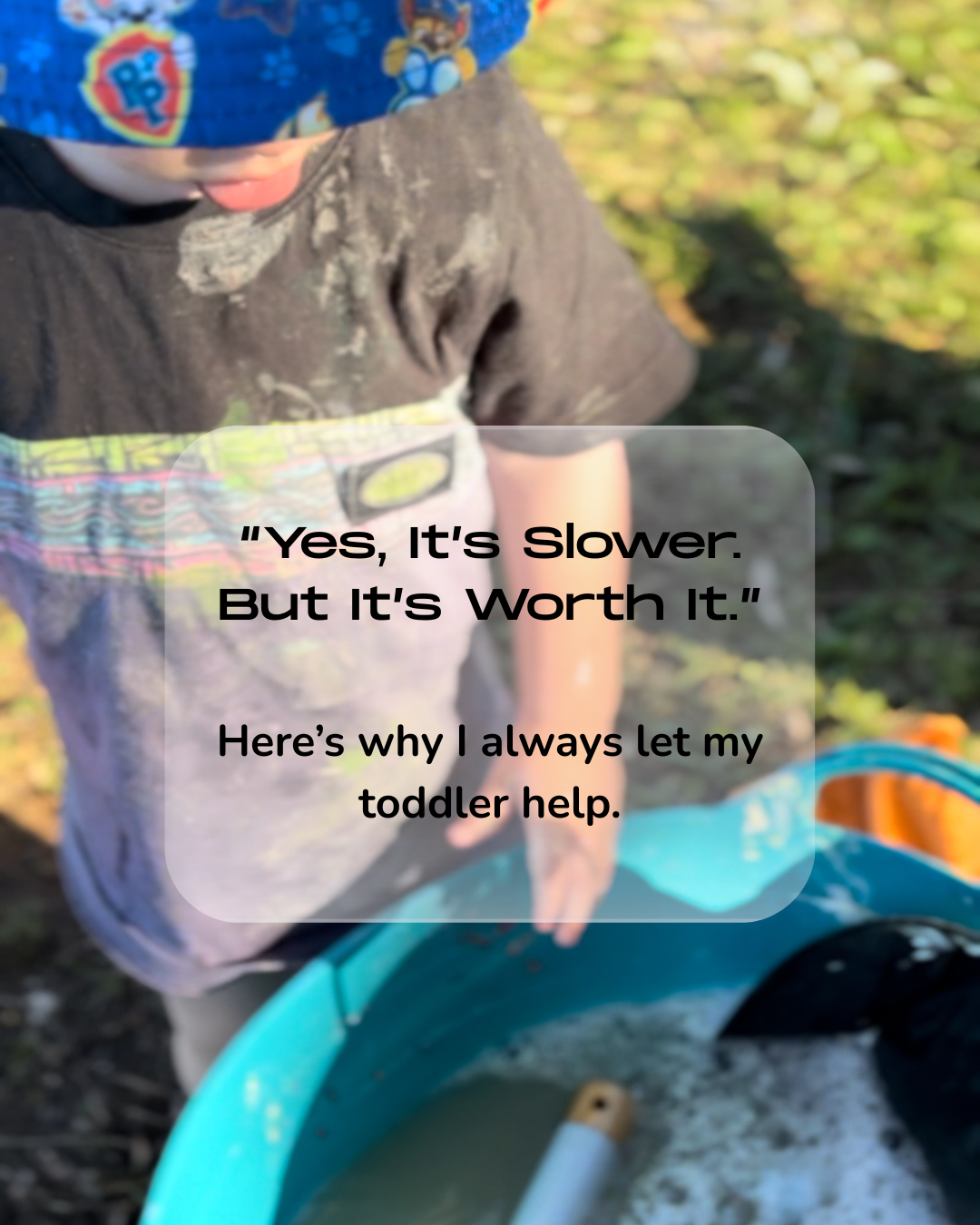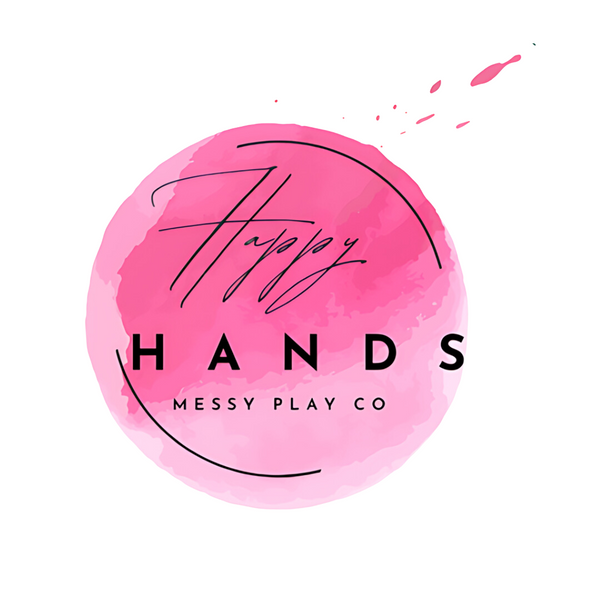
🧼 Why You Should Let Toddlers Help (Even When It Slows You Down)
Share
By Madison Cadby – Early Childhood Educator & Founder of Happy Hands Messy Play Co.
“It’s faster if I just do it myself.”
It’s a phrase I hear constantly—and one I’ve said myself more times than I can count. When your toddler insists on helping carry a plate, pour their own water, or clean up after play, your instinct might be to gently wave them off with a kind, “Mummy will do it.”
After all, they’re little. They’re messy. It takes longer.
But here’s the truth: those moments? They’re packed with learning.
And when we constantly step in and take over, we rob them of something important—the opportunity to try.
As an Early Childhood Educator with over a decade of experience, I want to share with you why letting toddlers help (even imperfectly) is a powerful tool for learning, connection, and development.

🧠 What’s Actually Happening When Toddlers Help
Toddlers are driven by a developmental need to imitate, participate, and contribute. It's how they build a sense of identity, confidence, and belonging in their world.
When you invite your toddler to help—whether it's wiping the table, putting away playdough tools, or helping sort the laundry—they’re not just helping. They’re:
1. Developing Cognitive Skills
-
Understanding cause and effect (e.g. if I wipe, the mess goes away)
-
Learning sequencing (first we pack away, then we wash hands)
-
Practising attention span, focus, and task persistence
2. Strengthening Fine & Gross Motor Skills
-
Gripping sponges, lifting items, pouring water
-
Crossing the midline, coordinating hand-eye movement
-
Building finger strength and bilateral coordination for later skills like writing and dressing
3. Boosting Language & Communication
-
Learning action words: “wipe,” “carry,” “pour”
-
Engaging in back-and-forth conversation: “Where should this go?”
-
Practising social interaction and listening skills
4. Building Emotional & Social Development
-
Feeling competent, included, and capable
-
Learning patience, turn-taking, and flexibility
-
Gaining confidence from being trusted with a real task
💡 Why Slowing Down is Hard—But Worth It
In our fast-paced world, it's natural to want efficiency. Mornings are busy. Routines are tight. Letting your toddler “help” might feel more like a delay than a benefit.
But here’s what I always remind myself: the goal isn’t to get things done quickly—it’s to raise children who feel competent, confident, and connected.
When you allow your toddler to help—even if it’s just one small part—you’re sending powerful messages:
-
“You are important here.”
-
“You’re capable of contributing.”
-
“Mistakes are okay. Trying matters more.”
🌱 Small Ways to Let Toddlers Help
You don’t need to give them full control of the kitchen or the clean-up process. Start small, and focus on progress over perfection.
Here are a few ideas you can try today:
-
Let them wipe the table with a cloth after snack time
-
Invite them to pack away one or two toys after play
-
Offer them a small water jug to pour their own drink
-
Let them sort socks while you fold the laundry
-
Ask for “help” stirring, sprinkling, or setting napkins at dinner
And when you're doing sensory play? Invite them to sweep up the spills, rinse the tools, or dry the trays. It doesn’t have to be neat—it just needs to be theirs.

🧸 From Pretend to Real-Life Learning
In the early years, play is how children practise life. But equally important is helping them live life alongside you. When we include toddlers in real routines—cleaning, preparing, organising—we’re giving them real-world context, rich language experiences, and meaningful skill-building.
At Happy Hands Messy Play Co, I often remind families that the sensory play we offer isn’t just about keeping kids busy—it’s about fostering independence, regulation, and connection through hands-on, developmentally supportive experiences.
And inviting your child into clean-up? That’s part of the learning too.
Letting toddlers help isn’t always convenient. It will take longer. It might get messier. But it's worth it.
Because every time you slow down enough to say, “Want to help me?”
You’re not just teaching a task—you’re building their foundation.
Their confidence.
Their capability.
Their connection to the world around them.
Looking for more ways to bring learning into everyday life?
Our monthly Learning with Happy Hands Subscription Box makes it easy to weave meaningful play and skill-building into your child’s day—without the prep, the stress, or the overwhelm.
📦 Sensory-rich play, delivered to your door
🧠 Designed by a qualified Early Childhood Educator
💛 Perfect for toddlers and preschoolers aged 2–6

